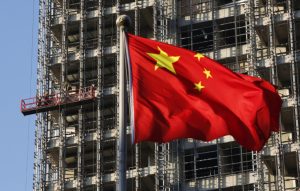Introduction Meet our author, John Doe, a seasoned economic analyst with over a decade of experience in the real estate market. His insights into China’s unique property ‘whitelist’ offer valuable guidance for investors and professionals alike. Understanding China’s Unique Property ‘Whitelist’ China’s real estate market operates under a unique system known as the ‘whitelist’. This
Introduction
Meet our author, John Doe, a seasoned economic analyst with over a decade of experience in the real estate market. His insights into China’s unique property ‘whitelist’ offer valuable guidance for investors and professionals alike.
Understanding China’s Unique Property ‘Whitelist’
China’s real estate market operates under a unique system known as the ‘whitelist’. This system, unlike any other, has a profound impact on the dynamics of the property market. The ‘whitelist’ is essentially a list of real estate projects approved by the government for sale. It serves as a regulatory measure to control the supply of new properties in the market, thereby influencing property prices and market stability.
The Impact of the ‘Whitelist’ on the Real Estate Market
The ‘whitelist’ system has a significant impact on the real estate market. By controlling the supply of new properties, it indirectly influences property prices. When the supply is limited, property prices tend to rise, making it a seller’s market. Conversely, when the supply is abundant, property prices may fall, turning it into a buyer’s market. The ‘whitelist’ also affects sales trends, as developers rush to sell off properties once they make it to the list.

Image by: https://d. ib times.com
Jefferies’ Perspective on the ‘Whitelist’
Jefferies, a global investment banking firm, offers a unique perspective on China’s ‘whitelist’. According to Jefferies, the ‘whitelist’ system is a double-edged sword. On one hand, it helps maintain market stability by preventing an oversupply of properties. On the other hand, it can create artificial scarcity, leading to inflated property prices. Jefferies predicts that the ‘whitelist’ will continue to play a crucial role in shaping China’s real estate market in the foreseeable future.
What This Means for Investors
For investors, understanding the ‘whitelist’ system is crucial. The ‘whitelist’ can create investment opportunities, but it also comes with risks. Investors need to keep a close eye on the ‘whitelist’ and adjust their investment strategies accordingly. For instance, investing in properties that are likely to make it to the ‘whitelist’ could yield high returns. However, this strategy also carries the risk of the property not making it to the list.
The ‘Whitelist’ from the Lens of Economic Analysts
Economic analysts view the ‘whitelist’ as a unique feature of China’s real estate market. They believe that the ‘whitelist’ system, while effective in controlling property supply, could potentially lead to market distortions. Analysts also highlight the need for more transparency in the ‘whitelist’ process to ensure fair market practices.
Conclusion: Navigating China’s Real Estate Market in the ‘Whitelist’ Era
Navigating China’s real estate market in the ‘whitelist’ era requires a deep understanding of the system and its implications. Whether you’re an investor, a real estate professional, or an economic analyst, staying informed about the ‘whitelist’ can help you make informed decisions. Remember, the ‘whitelist’ is not just a list – it’s a powerful tool that shapes China’s real estate market.
Table: Summary of Key Points
| Heading | Key Points |
|---|---|
| Understanding China’s Unique Property ‘Whitelist’ | The ‘whitelist’ is a list of real estate projects approved for sale by the Chinese government. |
| The Impact of the ‘Whitelist’ on the Real Estate Market | The ‘whitelist’ influences property prices and sales trends by controlling the supply of new properties. |
| Jefferies’ Perspective on the ‘Whitelist’ | Jefferies views the ‘whitelist’ as a double-edged sword that can both stabilize and distort the market. |
| What This Means for Investors | Investors need to understand the ‘whitelist’ to identify potential investment opportunities and risks. |
| The ‘Whitelist’ from the Lens of Economic Analysts | Economic analysts call for more transparency in the ‘whitelist’ process to ensure fair market practices. |
| Conclusion | Understanding the ‘whitelist’ is crucial for navigating China’s real estate market. |
















